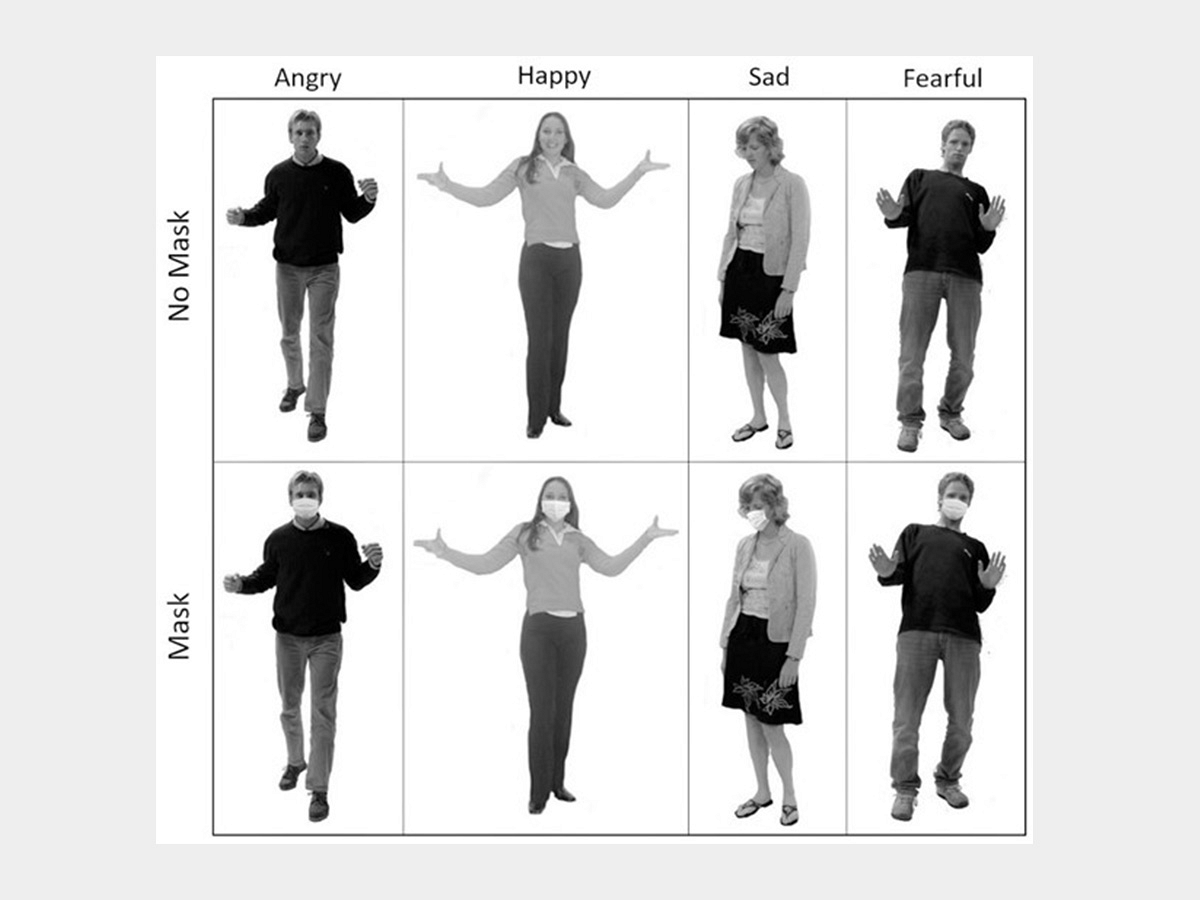Leading psychologists from our Department of Psychology have discovered in their latest research that people can identify emotions and traits of other people wearing a face mask when the whole body is visible.
Their study found that face masks made no difference to people’s ability to recognise different emotions.

Identifying emotions
The researchers carried out this experiment with 70 participants from the UK using the stimuli expressing anger, happiness, sadness and fear from Van den Stock and de Gelder’s (2011) BEAST stimuli image set (above) and adding a face mask to those images.
Participants were asked to recognise the emotion and give a confidence level for their decision for both the masked and unmasked stimuli.
They discovered that, contrary to previous work using isolated pictures of heads, participants could effectively recognise emotions portrayed through the body and face masks had no impact on emotion recognition.
Their study results also indicate that, in most social interactions, people will be more than capable of determining the emotion of a masked person because emotions can also be conveyed by the body.
Can all types of emotions be recognised?
Although participants could recognise the emotions during the research experiment, they were less confident in judging all the emotions of another person in a face mask.
Interestingly, one difference in ability was that the participants were significantly less accurate at recognising happiness when someone was masked.
The researchers suggest that people wearing a face mask should put extra effort through their body by using simple gestures such as thumbs up to portray happiness more visibly.
This would greatly help those for whom emotion recognition is difficult.
